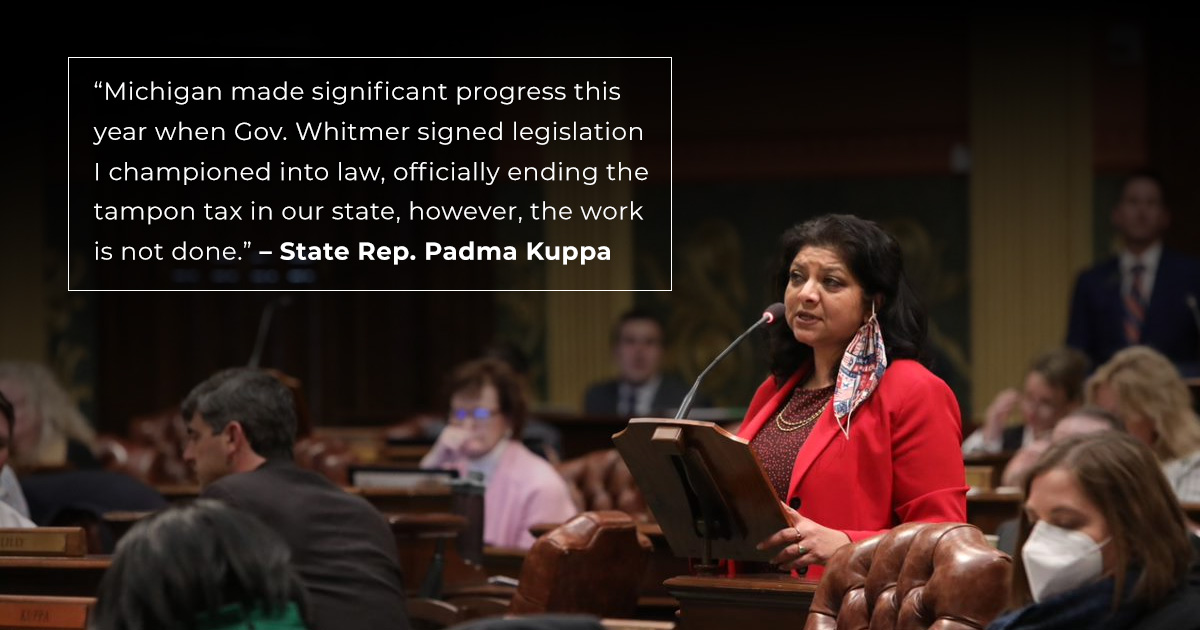LANSING, Mich., Dec. 9, 2021 — Today, state Rep. Padma Kuppa (D-Troy) introduced House Bill 5636, which would create incentives for schools to provide menstrual hygiene products in their restrooms at no cost to students.
According to a 2021 study, 23% of students ages 13-19 said they struggled to afford menstrual products, with the COVID-19 pandemic severely impacting resources. Under this bill, schools that provide menstrual products in at least some of their restrooms would be able to be reimbursed, by the state, a percentage of the costs. For each district, the percentage reimbursed would be equal to the percentage of students on the free and reduced-price lunch program.
“Michigan made significant progress this year when Gov. Whitmer signed legislation I championed into law, officially ending the tampon tax in our state,”Kuppa said. “However, the work is not done. We still need to take additional steps to mitigate the effects of period poverty in Michigan, and this bill is an important step toward that goal.”
Zoe Kimlick, Rep. Kuppa’s then-intern and a school administrator at the time, brought the idea to the representative. “Schools already provide free toilet paper, soap and paper towels in restrooms to students, but other essential products, such as tampons and menstrual pads, are often available only to students who come prepared to pay for them,” Kimlick said. “Even when schools have menstrual products available upon request in their front offices, many students are not comfortable compromising their privacy to ask for them, and far too often, it falls to school administrators to pay for the products personally.”
Several states and countries have already adopted legislation related to providing free menstrual products in public schools. The city of Ann Arbor also became the first city in the U.S. to require free menstrual products in all public restrooms.
“This legislation continues on the premise of those acts,” said Rep. Kuppa, “which is that menstrual products are necessities, and that those who need them should always be able to access them. This is even more true when it comes to our students.”

